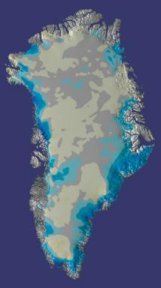The areas of Greenland that are melting are shown in blue.
Click on image for full size
Courtesy of NASA
Greenland is Melting!
News story originally written on July 21, 2000
A seven year study led by NASA has shown that the ice surrounding Greenland is melting.
Scientists now think the best way to study global climate is to monitor the world's largest island. No one knows for sure why the ice is thinning, so future studying is needed.
Whenever ice melts it contributes to higher sea levels. Scientists say the melting of
Greenland's ice is not threatening, but if the trend continues in other parts of the world, such as Antarctica, we may have problems in the future.
Fortunately, NASA is working on a new satellite, set to launch in 2001, that will monitor these ice regions.
You might also be interested in:
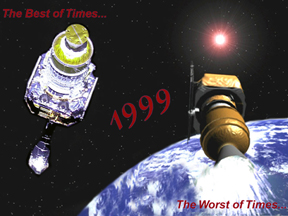
It was another exciting and frustrating year for the space science program. It seemed that every step forward led to one backwards. Either way, NASA led the way to a great century of discovery. Unfortunately,
...more
The Space Shuttle Discovery lifted off from Kennedy Space Center on October 29th at 2:19 p.m. EST. The weather was great as Discovery took 8 1/2 minutes to reach orbit. This was the United States' 123rd
...more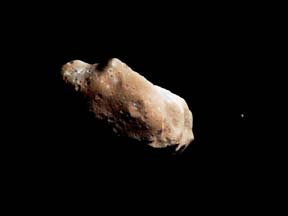
A moon was discovered orbiting the asteroid, Eugenia. This is only the second time in history that a satellite has been seen circling an asteroid. A special mirror allowed scientists to find the moon
...more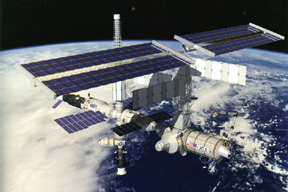
Will Russia ever put the service module for the International Space Station in space? NASA officials want an answer from the Russian government. The necessary service module is currently waiting to be
...more
A coronal mass ejection (CME) happened on the Sun early last month. The material that was thrown out from this explosion passed the ACE spacecraft. The SWICS instrument on ACE has produced a new and very
...more
J.S. Maini of the Canadian Forest Service called forests the "heart and lungs of the world." This is because forests filter air and water pollution, absorb carbon dioxide, release oxygen, and maintain
...more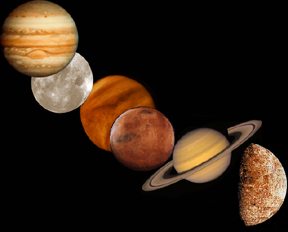
In late April through mid-May 2002, all five naked-eye planets are visible at the same time in the night sky! This is includes Mercury which is generally very hard to see. You won't want to miss this!
...more


